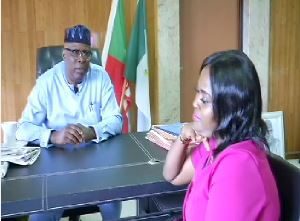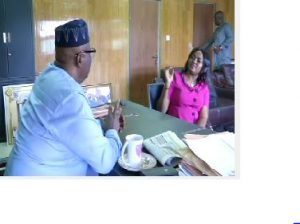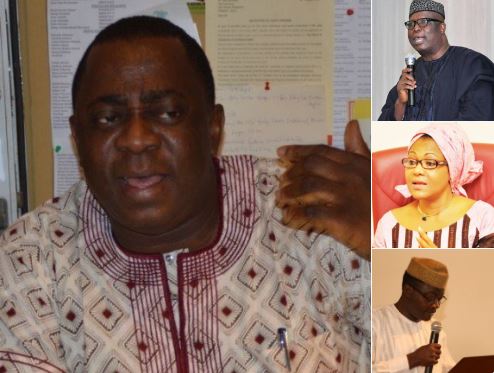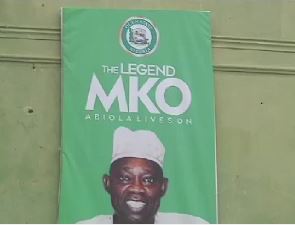 As Nigerians celebrate the new Democracy day, our Correspondent, Mariah Olasehinde, looks at the role Nigerian Journalists who fought, died and went into exile for June 12 played.
As Nigerians celebrate the new Democracy day, our Correspondent, Mariah Olasehinde, looks at the role Nigerian Journalists who fought, died and went into exile for June 12 played.
There are many who believe that journalists are the real heroes of the June 12 struggle as they spoke truth to power in order to expose the ills of the
then military administration.
Moshood Abiola was widely believed to have won what is still described as the most credible presidential election conducted in the history of the
country . But not only was this election annulled by military President Ibrahim Babangida, he was also imprisoned by General Sani Abacha when he sought to claim his mandate.
MKO Abiola was also the owner of the nation’s largest independent media house, the Concord Group, and widely believed to have won
He became the rallying point of Nigerian Journalists in their battle against the excesses of the military regime which responded with a calculated, and almost successful, campaign to decimate the independent press.
Some of the Journalists who took the courage in the trenches to expose human rights violations, are strongly opposed to the military being allowed to
rule Nigeria again.
 One of them, Senator Babafemi Ojodu has lived to tell the tale of how he was arrested, tortured, beaten and detained during the Military administration. He passed through a bitter experience in detention at Shangisha, alongside Seye Kehinde, another journalist.
One of them, Senator Babafemi Ojodu has lived to tell the tale of how he was arrested, tortured, beaten and detained during the Military administration. He passed through a bitter experience in detention at Shangisha, alongside Seye Kehinde, another journalist.
One Journalist whose name comes to mind in this struggle is the then Kaduna correspondent of THE NEWS magazine, James Bagauda Kaltho, who was gruesomely murdered by the military junta during the June 12 struggle.
The Bagauda Kaltho Press. Centre in Lagos which was upgraded after eighteen years by Former Governor. Of Lagos State, Akinwunmi Ambode, serves as a memorial for him
Journalists like Kunle Ajibade, Chris Anyanwu, Ben Charles-Obi, George M’bah, Onome Osifo-Whiskey, Richard Akinola, Dapo Olorunyomi, but to mention were also victims of the military tyranny. They also share their ugly experiences.
Speaking, Kunle Ajibade: “My happiest day in prison was when they brought my second son to me. My wife was carrying his pregnancy when I was arrested. He was born January 16, 1996, and he was brought to Makurdi Prisons in April 1996. I had sent his name, Folarinwa, from prison. He was four months old when I saw him for the first time. My incarceration caused my wife a lot of problems. That she delivered safely was a great relief.
I got to know through the experience that the pen is mightier than the sword”
Chris Anyanwu said: “Kirikiri Women’s Prison was the first prison I had seen in my life. I was led through the gate by 20 armed men in three trucks and two jeeps. The first whiff of air hit my nose, my stomach wrenched, and I bent over and threw up in the reception hall. The thought of prison was abhorrent to every nerve in my body. It was mortifying enough to be tossed around in the Black Maria military vehicle, but to be caged like an animal was devastating. By the time I got to the cell, all I wanted was to close my eyes. I wished the night would draw on and on. For eight days I lived on
bottled water. I had nightmares every night. Within eight days, my hair went grey”
Ben Charles Obi: “I was dumped in a room where I sat and slept on a bare floor for about five days. From there, at Park Lane, Apapa, I was moved to DMI headquarters, where I shared a cell with Kunle Ajibade of TheNEWS. The mosquito bites were terrible and the premises were hellish. It was my first encounter with Ajibade. However, I had met Mrs. Chris Anyanwu of The Sunday Magazine at Park Lane where she was detained in a cell next to mine. Initially, they tried to stop us from interacting, but later we had useful discussions where we shared our experiences, and our spirits were lifted”
These heart touching experiences shared by Nigerian journalists only further amplifies why June 12 deserves to be Nigeria’s democracy day.





